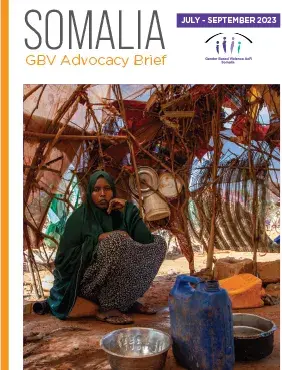In the third quarter of 2023, although, Somalia averted the looming famine, due to above average Gu season rainfall, efforts of local communities & authorities and sustained humanitarian assistance, thousands of Somalis still remained vulnerable to extreme climatic shocks. The humanitarian situation compounded during the reporting period as a result of the extended effects of the unprecedented drought, increased prices of the essential commodities, political instability, eruption of clan fighting in the Sanag region of Somaliland and the ongoing conflicts. The security situation remained tense, with Al-Shabab, referred to as the non-state armed group (NSAG), frequently conducting indiscriminate attacks where civilian became victims. In a bid to reclaim territory from the NSAG, Somali forces and their allies continued the Black Lion military operations primarily in Hirshabelle and Galmudug States. Additionally, Somalia was on the verge of another climate emergency with the prediction of extreme El Niño weather patterns during the Dyer rainy that would bring heavy rains and flooding. In the context of this crisis in Somalia during the third quarter of 2023, heightened the vulnerabilities of women and girls to gender-based violence (GBV) as a significant risk that included exploitation, sexual and intimate partner violence. Women and adolescent girls, women from minority clans, female headed households and women living with disabilities are the most marginalized and currently most affected by the crisis.
According to the Integrated Food Security Phase Classifications (IPC), from July to September 2023, 3,7 million people were expected to face crisis or worse food insecurity outcomes (IPC Phase 3 and above) including over 900,00 who are likely to face emergency (IPC Phase 4). About 97,000 women and girls are estimated to suffer from lack of access to protective shelter and adequate specialized services for GBV
Families were forced to abandon their homes to seek refuge in makeshift shelters or overcrowded displacement camps, where they face inadequate living conditions, lack of clean water, limited access to essential services and enhanced protection risks that includes GBV. According to the Protection & Return Monitoring Network (PRMN), 198,000 people were displaced in Somalia during the quarter. Nearly 37% of the displacements is attributed to the ongoing conflicts while 52% displacements occurred due to the extended effects of drought. Nearly, 70% of the people displaced were estimated to be women and girls.
The GBVIMS report for the third quarter recorded 2823 new GBV cases in the country that includes 714 incidents of sexual violence. This reflected an increase by 4% compared to quarter two of 2023. It was also noted 62% of the reported incidents are physical assault followed by 17% of rape. As per the case context, 57% accounted for intimate partner violence.
During the 3rd quarter of 2023, The GBV AOR partners reached 186,319 persons (77,960 Women; 23,285 Men; 45,493 Girls and 39,581 Boys) with GBV prevention, response and capacity building services.


